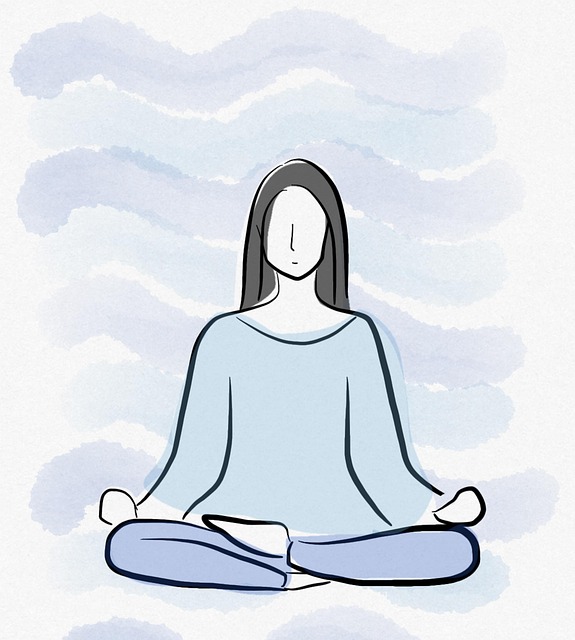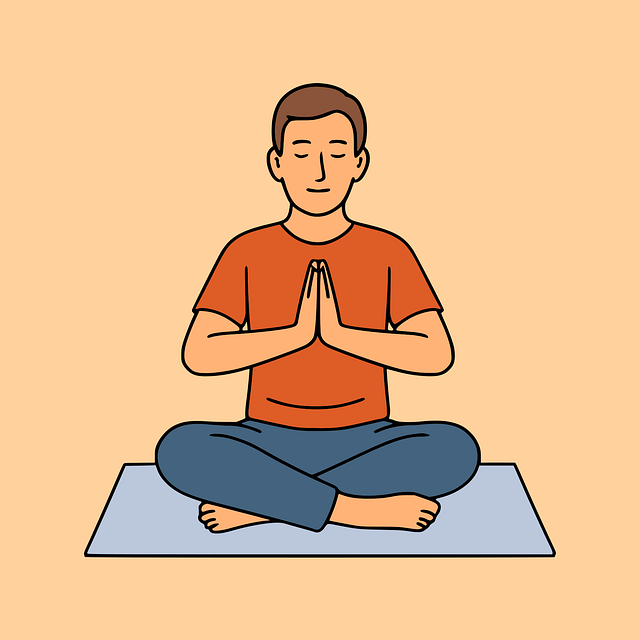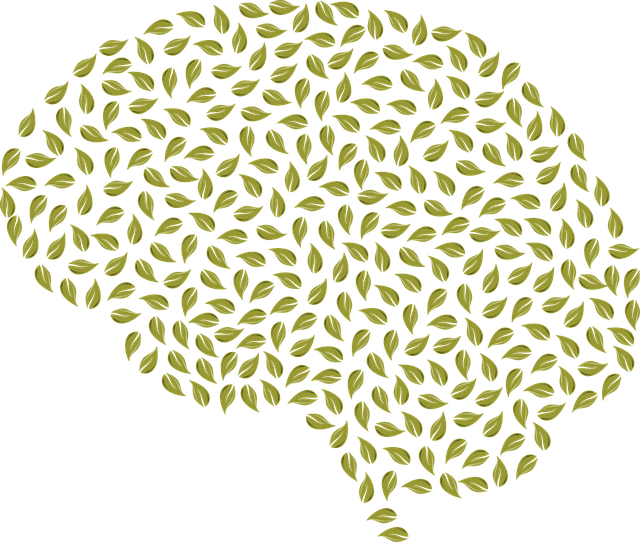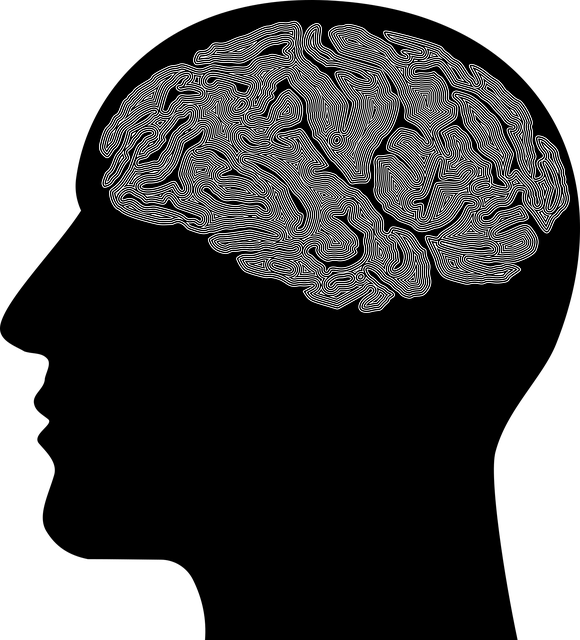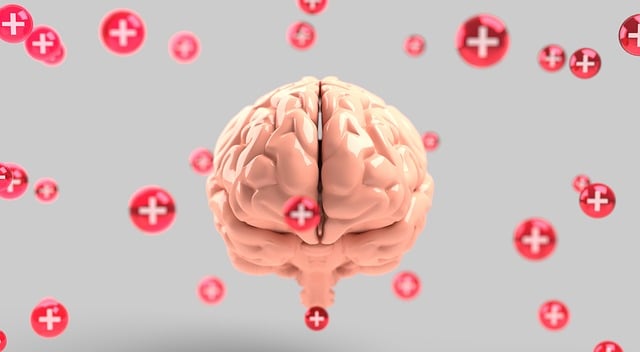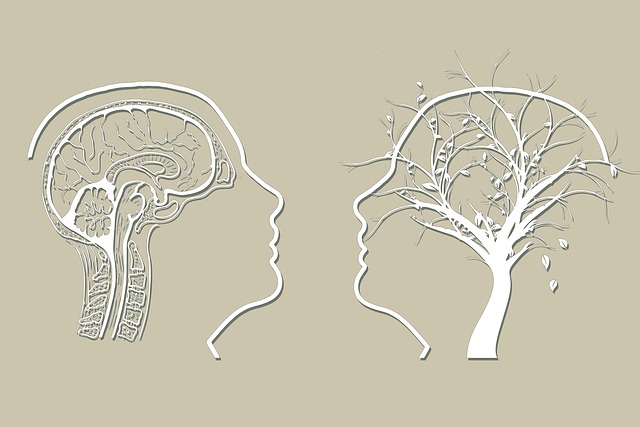Mindfulness meditation is an effective therapy for elderly individuals with chronic illnesses like arthritis and heart disease, offering relief from pain, stress, and anxiety. By cultivating present-moment awareness and enhancing communication with healthcare providers, elders can improve their mental wellness. Regular meditation promotes self-care, emotional healing, and overall satisfaction in later life. Creating a calm meditation space with soft lighting and soothing sounds is vital for successful practice. Integrating 10 minutes of mindfulness daily in quiet environments complements Trauma Support Services and Emotional Healing Processes, while Mental Wellness Journaling tracks positive shifts in mental wellness.
- Understanding Mindfulness Meditation for Chronic Illness Management
- The Benefits of Meditation for Elderly Individuals
- Creating a Suitable Environment for Practice
- Techniques and Exercises for Effective Session
- Integrating Meditation into Daily Routine
Understanding Mindfulness Meditation for Chronic Illness Management

Mindfulness meditation has emerged as a powerful tool for managing chronic illnesses, especially among the elderly population. This ancient practice involves focusing one’s awareness on the present moment, non-judgmentally, and has been shown to reduce symptoms and improve quality of life for those living with long-term health conditions. For elders, mindfulness can be a game-changer in the management of pain, stress, and anxiety associated with chronic diseases like arthritis or heart disease.
Understanding mindfulness meditation as a therapy for elders with chronic illnesses requires recognizing its potential to enhance communication strategies within healthcare settings. By participating in mental wellness journaling exercises or attending mental health education programs designed around mindfulness, individuals can develop skills to navigate their health journey with greater ease. These practices foster self-awareness and promote a sense of control, which are essential aspects of managing a chronic illness. Through regular meditation, elders may discover effective communication methods to convey their needs and experiences to healthcare providers, further improving the overall care they receive.
The Benefits of Meditation for Elderly Individuals

Meditation has emerged as a powerful tool for elderly individuals seeking to improve their overall well-being and quality of life. For seniors, who often face various physical and mental health challenges, regular mindfulness practice offers numerous advantages. One of the key benefits is its ability to act as a therapy for chronic illnesses prevalent in this age group, such as heart disease, diabetes, and arthritis. By cultivating present-moment awareness, meditation helps elders manage symptoms, reduce pain perception, and improve overall physical comfort.
Moreover, emotional healing processes are significantly enhanced through meditation. It enables the elderly to develop a deeper understanding of their emotions, fostering self-care practices that can be incorporated into daily routines. Stress management workshops organization often emphasizes mindfulness as a core component, teaching seniors techniques to navigate life’s stressors and promote mental resilience. This not only improves emotional well-being but also encourages a sense of independence and overall satisfaction in later years.
Creating a Suitable Environment for Practice

Creating a calm, peaceful space is essential for effective mindfulness meditation practice, especially beneficial for older adults dealing with chronic illnesses. The environment plays a crucial role in establishing a routine and enhancing mental wellness. A quiet, comfortable room, free from distractions, allows individuals to fully immerse themselves in the present moment. Soft lighting, soothing sounds, or even plants can contribute to a relaxing atmosphere, making meditation an enjoyable experience rather than a chore.
For those seeking therapy for elders with chronic illnesses, designing a dedicated meditation area could be a valuable part of their risk management planning for mental health professionals. It provides a safe haven where they can practice regularly, fostering a sense of control and well-being. Moreover, a serene setting encourages conflict resolution techniques to be applied naturally, helping individuals navigate through stress and anxiety, ultimately leading to improved overall mental health.
Techniques and Exercises for Effective Session

Mindfulness meditation, a powerful tool for mental well-being, involves techniques that can be tailored to suit diverse needs, especially for older adults dealing with chronic illnesses. A typical session could incorporate guided imagery exercises, where practitioners visualize peaceful scenarios to promote relaxation and reduce stress. For instance, imagining walking through a serene forest or sitting by a calm beach can help in lowering blood pressure and improving overall mental clarity.
Additionally, breath awareness is a fundamental exercise. By focusing on the inhalation and exhalation of breath, individuals can enhance their connection with the present moment, quieting racing thoughts and anxiety. This simple yet effective technique has been shown to reduce symptoms of depression and improve coping mechanisms in older adults. Community outreach programs implementing mindfulness workshops or public awareness campaigns that highlight its benefits can further encourage chronic illness management through holistic therapy approaches.
Integrating Meditation into Daily Routine

Integrating mindfulness meditation into your daily routine can offer significant benefits for seniors managing chronic illnesses. Starting small and consistent is key; even just 10 minutes a day can make a difference. Consider setting aside a specific time each morning or evening, placing yourself in a quiet, comfortable environment free from distractions. This dedicated space allows for a smoother transition into the meditative state. Over time, you may find it easier to maintain focus and deepen your practice.
Remember, mindfulness is not about clearing your mind but rather observing thoughts and sensations without judgment. For those dealing with trauma or seeking emotional healing, this can be particularly beneficial. Incorporating meditation alongside Trauma Support Services or Emotional Healing Processes can enhance mental wellness. Additionally, keeping a Mental Wellness Journaling Exercise Guidance can provide insights into the emotional shifts and improvements brought about by your practice.
Mindfulness meditation offers a powerful tool for managing chronic illnesses, as evidenced by its benefits for elderly individuals. By creating a suitable environment and integrating practices into daily routines, folks can harness the therapeutic effects of meditation. Techniques shared in this guide empower users to navigate their health journeys with greater ease, fostering a sense of calm amidst life’s challenges. For those supporting elders with chronic conditions, incorporating mindfulness into care plans can significantly enhance quality of life.
